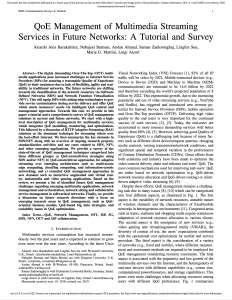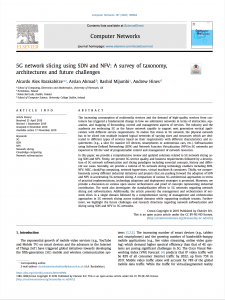
Alex finalised two journal papers for publication within one week before flying off to present a paper at Globecom – a great outcome by any standards. When you consider that the two papers are a combined 82 pages in length and published in high impact journals, it is an even more impressive feat.
Alex is lead author on both journal papers:
QoE Management of Multimedia Streaming Services in Future Networks: A Tutorial and Survey (IEEE Communications Surveys & Tutorials; h-index 147)
and
5G network slicing using SDN and NFV: A survey of taxonomy, architectures and future challenges (Elsevier Computer Networks; h-index 119).


A survey paper requires a different approach to a traditional research paper so we asked Alex to provide a list of writing tips based on his experience:
- Define and identify the scope of the paper by listing the topics/dimensions to be covered in the survey paper.
- Identify your motivation, exiting challenges and the problem statement to be addressed in the survey paper.
- Ensure that the selected topic is popular and is expected to grow over time.
- Make sure that your survey paper does not exist in the literature and it will fill a gap in emerging topic(s) of the research field.
- Ensure that papers are available in the literature with new approaches regarding the topics discussed in the survey paper.
- Before start writing a good comprehensive survey paper, organize a collection of papers (with existing algorithms/methodologies/approaches etc.): authors are advised to read at least 20 – 30 good papers relevant to the topic.
- Provide a good classification of available approaches/methodologies, clear and self-explanatory figures and tables in order give readers a good overview of the research topic.
- Ensure that the information flow in the survey paper is well connected: this will help the readers and increase the paper visibility.
- Provide a summary and lessons learned along with your own commentary for every section: this should discuss the contribution to the knowledge domain from your perspective.
